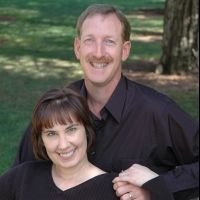Now we're on Chapter Two of An Unstoppable Force by Erwin McManus: Momentum
In Isaiah He (God) clearly declares that, while we are to remember the past, we are not to remain in the past. Our memories of God's activity in our lives are to move us into the future. Our experiences from the past are to give us the confidence to face the challenges of tomorrow.
A Refuge FOR the World, Not FROM It
But the church was never intended to be a monastery. In fact, God intends that there be no place that we can hide, except in his presence. When the church becomes our shelter from a radically changing world, we fail to turn to God and make him our hiding place and our shelter.
Mass Can Be a Mess
Conferences and siminars are jampacked with church leaders who come with one simple questions, "How can my church grow?" Only after we begin to deal with the complexities and challenges of growth do we tune in to issues such as assimilation and discipleship. Anyone who has experineced significant growth in a congregation knows that assimilation and discipleship are integral to growth and, in many ways, impossible to separate from that dynamic. But when you're standing at the front end of the challenge of leading a congregation to grow, you're just asking the simple question, "How do I get more people here?" It doesn't take that much intuition to figure out that if you don't have any people, you're not pastoring a congregation.
Mass equals people. Without people there is no momentum. When people move together with common purpose, momentum happens. And while most Christians would quickly acknowledge that it is important to reach people for Christ, an underlying comfort level is often threatened when growth actually happens.
The same people who make the church messy also make the church meaningful. We must be willing to make a mess to save a life.
That's probably enough for today. Chapter two is fascinating. It's all about growth and momentum and how pastors often think the way to make their church grow (which unfortunately seems to be the goal of many) is to read blogs, listen to podcasts, and read books on how other pastors in other parts of the country have done it. I think what some pastors don't realize is that growth happens in two ways. The first is that the pastor wholeheartedly seeks God and His direction for that particular church. He listens for God and doesn't just shoot in the dark by trying different things, or copying someone else. It's also about connecting individuals to other individuals and having a discipleship strategy in place. That means Bible studies, small groups and one on one discipleship relationships. When all people get is teaching on Sunday morning, it's a buckshot approach. You're hoping that what is said to the crowd actually lands in people's hearts. Sometimes it does, sometimes it doesn't because everyone is in a different place with different issues and questions, but there is no one to ask questions of during a Sunday morning teaching.
Jesus addressed the crowds. Many were added to their number. These people accepted the Gospel. But that's not how you make leaders. Jesus then walked alongside his disciples. That was his small group. Then He took a few off to the side and taught them individually. That's one on one discipleship. It was His disciples who became leaders and started the church when Jesus rose, not the crowd.
So, the question for today is . . . Where are you? Are you part of the crowd, sitting and listening once a week? Are you growing by serving and practicing God's commands? Are you being discipled in a small group? Are you leading a small group or growing someone individually? Are you turning out leaders who will turn out leaders? Are you reaching even furuther than that? God has a purpose for your life. How willing are you? He's watching your heart and your actions. Surrender all and be in for the ride of your life!
Subscribe to:
Post Comments (Atom)




No comments:
Post a Comment